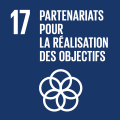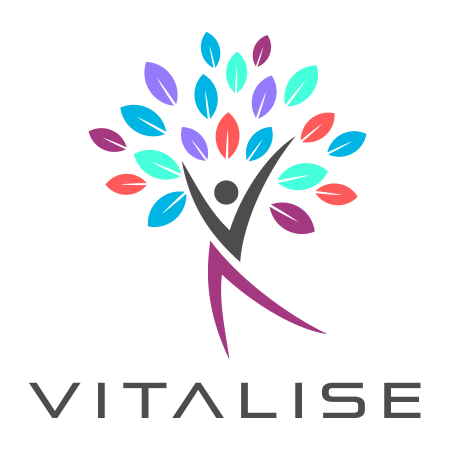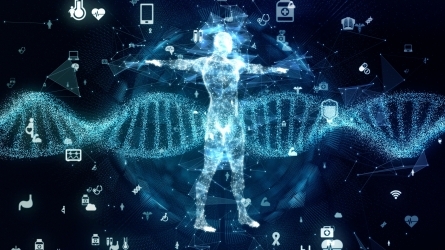
VITALISE 2023 Summer School on Living Labs
Description
The VITALISE 2023 Summer School on Living Labs, aims to provide researchers worldwide effective training both on how to implement the Living Lab methodology in their studies, as well as involve living labs Research Infrastructures and their services in their Health and Wellbeing research studies. Researchers in the Health and Wellbeing domain will have the opportunity to learn more about the open innovation and Living Lab tools, methods and services to improve their research and follow new scientific paths thanks to the support of the VITALISE high-experienced trainers on the Living Lab methodology. Participants will be also invited to access the VITALISE ICT tools and infrastructure within the project open calls to collaborate on scientific research with Living Labs recognized and labelled by the European Network of Living Labs.
The VITALISE 2023 Summer School on Living Labs, is provided by the VITALISE European Commission funded project, which interlinks living labs coming from the three major living lab networks in Europe:
- ENoLL, with 130 living lab members around the world, 41% of which are in the health and wellbeing domain.
- Forum LLSA comprised of 38 members, all of which in the health and wellbeing domain.
- EIT Health Living Labs, composed of 56 active Living Labs and an additional 37 that are in the process of joining, all of them in the health and wellbeing domain
By bringing together these three networks, VITALISE interconnects the majority of Living Labs across Europe, to cover all European geographical areas and beyond, across the spectrum of the Health and Wellbeing domain. The aim is to open up living lab infrastructures as a means to facilitate and promote research activities in the health and wellbeing domain in Europe and beyond by enabling in-person Transnational Access to seventeen living lab research infrastructures and supporting remote digital access to datasets (Virtual Access) of rehabilitation, transitional care and everyday life activities through harmonized processes and common tools. The project will also develop training methods towards the wider understanding and valorisation of Living Lab methodologies in the research community, such as a Fast Track Training service to researchers accessing our Living Labs from all over Europe and a Master Course for students eager to get the required knowledge and expertise to implement open innovation and Living Labs research and practice.
The first Edition of the VITALISE Summer School was held in Athens in July 2022 and focused on supporting researchers external to the project to improve their research by implementing the Living Lab methodologies and tools.
The second edition of the VITALISE Summer School in June 2023, will be devoted to support researchers, students, teachers and practitioners in implementing their own Living Lab project case by exploring the services provided by other researchers within the VITALISE Living Lab community, as well as in overcoming the usual challenges faced by Living Labbers. In order to do so, a series of case studies will be offered by the VITALISE teachers and researchers, who will support the development of hands-on cases for and with the participants to the Summer School.
Lectures with case studies will be combined with a practical approach to research through a series of hands-on workshops.
During registration to this summer school, participants will also have the opportunity to join a Bootcamp: 2 extra days (06 & 07 June 2023) of free training in Commercialization and Market Search. The Bootcamp will focus on a practical approach for understanding the path to market new products and services.
This project has received funding from the European Union's Horizon 2020 research and innovation programme under grant agreement No 101007990.
Objectives
- Support European researchers and students, as well as teachers and practitioners, to acquire knowledge about the Living Labs methodologies, opportunities, challenges and services that can help them improv their career within the Health and ICT sectors.
- Contribute towards increasing access of external researchers, outside the VITALISE project, to research infrastructures made available by Living Labs around the world, with the ultimate goal of improving knowledge exchange and academic results.
- Co-create services based on open innovation and Living Lab methodologies together with stakeholders from all over Europe by increasing sharing of experiences and expertise, regarding mainly the health & wellbeing sector, but also relevant to industrial and technological innovation overall.
Activity directed to
- All public
Directors

Francesca Spagnoli
European Network of Living Labs
Speakers

Diego Carvajal

leidy enriquez florez

Gorka Epelde Unanue

Jokin Garatea Gerrikagoitia
GAIA
Jokin Garatea, director del departamento Internacional de Gaia, Asociación Cluster TEIC del País Vasco. Es Licenciado en Derecho por la Universidad de Deusto y Diplomado en Economía Comunitaria por el Instituto Hispano-Alemán. Especialista en Comercio Exterior por el Departamento de Economía Aplicada de la Universidad del País Vasco en colaboración con el Gobierno Vasco. Coordinador de Proyectos del Fondo Vasco Aquitano para proyectos de fomento de I+DT de PYMEs del sector electrónico, cofinanciado por el Gobierno Vasco. Es miembro del Consejo Asesor del EnoLL (Red Europea de LL) y vice presidente del Ocean LL Transfronterizo desde junio de este año.

Eva Kehayia

Evdokimos Konstantinidis

Despoina Petsani

Miguel Rujas

Teemu Santonen
Registration fees
| Registration | Until 02-06-2023 |
|---|---|
| 0 EUR |
Venue
GAIA Bilbao
Paseo Uribitarte, 3 - 3º, 48001 Bilbao
Bizkaia
GAIA Bilbao
Paseo Uribitarte, 3 - 3º, 48001 Bilbao
Bizkaia
Sustainable development goals
Agenda 2030 is the new international development agenda approved in September 2015 by the United Nations. This agenda aims to be an instrument to favour sustainable human development all over the planet, and its main pillars are the eradication of poverty, a reduction in equality and vulnerability and fostering sustainability. It is a unique opportunity to transform the world up to 2030 and guarantee human rights for all.

3 - Good health and well-being
Guarantee a healthy life and foster the well-being of all people of all ages. Key issues: universal healthcare coverage, sexual and reproductive health, reduction in the number of road accident casualties, pollution and chemical products, reduction in maternal and neonatal mortality, the end of epidemics such as AIDS, combating hepatitis and other water-borne diseases, drug and alcohol prevention, control of tobacco.
More information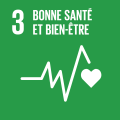
4 - Quality education
Guarantee quality education that is inclusive and equitable and foster opportunities for lifelong learning for everyone. Key issues: free-of-charge, equitable and quality education, access to higher education and training on an equal basis, education for sustainable development, suitable education centres for persons with disabilities, and safe, non-violent and efficient learning environments.
More information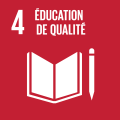
9 - Industry, innovation and infrastructure
Build resilient infrastructures, promote inclusive and sustainable industrialisation and foster innovation. Key issues: reliable, sustainable, resilient and quality infrastructures, inclusive and sustainable industrialisation, modernisation, clean and environmentally rational industrial technologies and processes, scientific research and improvement of technological capabilities, universal access to ICTs.
More information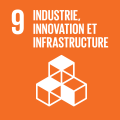
17 - Partnerships for the goals
Strengthen the means of implementation and revitalise the World Alliance for Sustainable Development. Key issues: mobilisation of resources, 0.7% of GDP for official overseas development aid, finances, cooperation in technology and innovation, ecologically rational technologies, skills building, universal and multilateral trade system, coherence on the legislative and institutional levels, availability of data, supervision, indicators and accountability.
More information